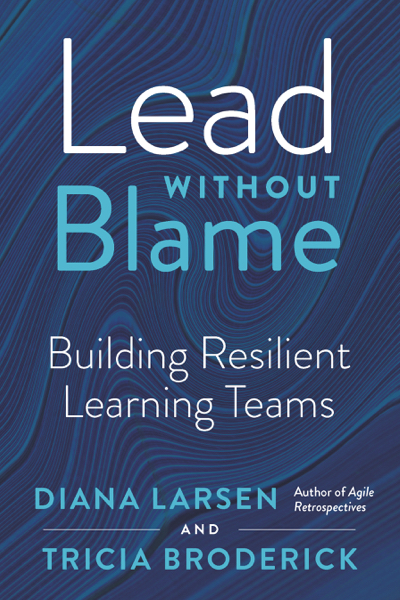At the first Agile conference I attended back in 2007, I sat in a session by Lyssa Adkins. I don’t remember what the session title was but I clearly remember this moment: She held up a blank piece of paper and said something to the effect that if you are an Agile leader, this is what your resume will look like.
My first reaction to this was pure terror. I was proud of my accomplishments and the resume that I had built. More importantly, resumes were a critical part of the job hiring process. How could this possibly be a good thing?
Over the years as I practiced more situational leadership, I began to understand her point. As a leader, my focus was helping others achieve accomplishments. I was behind the curtains, not in an evil way but in a supporting way. I was growing the company by growing others.
Fast forward to earlier this year. I began updating my resume. Boy, was she right! For everything I went to write out, my first thought was “my awesome team did that.” Yes, I realized that I helped them but taking any type of credit in a personal way seemed just wrong. Then I really started looking at my resume, what I valued wasn’t represented. I had a resume that portrayed me as only succeeding. Where are the experiments? Where is the learning highlighted? Suddenly, I felt this desire to apologize to every former employer that hired me for falsely representing myself.
I searched for example resumes for leaders. Only this came back with nothing for the situation I was now facing. After having a resume for over 17 years, I suddenly had a blank piece of paper. Only I wasn’t afraid, I was proud. I wanted something different to highlight the value I bring to an organization and the traditional resume approach, wasn’t going to cut it. So I experimented.
I added key lessons learned for each role that I’ve had. I updated the focus for each accomplishment not only for the benefits for the company but for the people. Next time, I’m considering adding something to align with the Who Am I elevator experiment blog post. Or maybe I’ll go bigger and try to turn my resume into a story.
What I am sure of is that I’m so very grateful that Agile killed my resume. The combination of all of my former accomplishments pales in comparison to just one recommendation from someone that I’ve helped face the edge and win. And I agree with this:
You manage things; you lead people.
~Rear Admiral Grace Murray Hopper
Then as a leader, I want to be measured and evaluated by how much I’ve helped people grow and subsequently grown myself.
What experiment ideas do you have for evolving resumes?





I received a great email that highlighted they express their values. I will be leveraging this too!